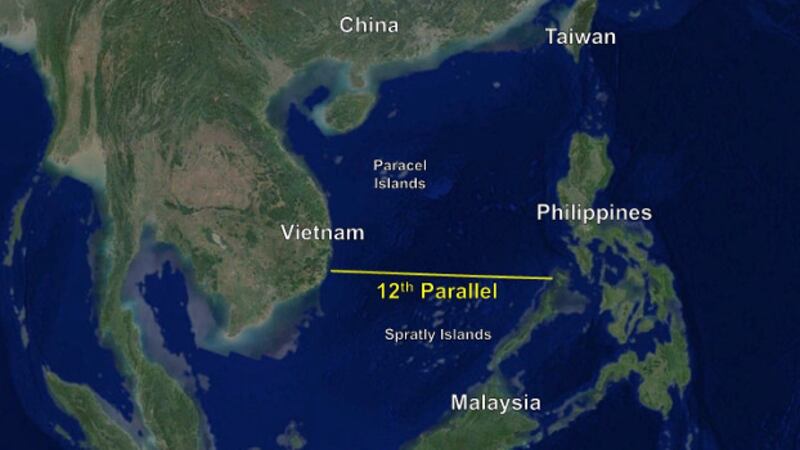The Vietnamese government on Thursday denounced China’s annual, unilateral fishing ban in the South China Sea, which begins May 1.
“Vietnam opposes and resolutely rejects China's unilateral decision,” Vietnamese Ministry of Foreign Affairs Deputy Spokesman Doan Khac Viet said at a press conference in Hanoi.
He said it violated Vietnam’s sovereignty over the Paracel Islands, the U.N. Convention on the Law of the Sea and the Declaration of Conduct of Parties in the South China Sea agreed by the Southeast Asian bloc in 2003. Viet added it “violates the Vietnam-China agreement on the basic principles guiding the settlement of sea-related issues.”
The comment came despite Vietnamese President Nguyen Xuan Phuc telling visiting Chinese Defense Minister Wei Fenghe on Monday to “not let the hostile forces destroy Sino-Vietnam relations.” He emphasized the need for political and military cooperation.
The fishing ban, which runs through Sept. 16, is typically opposed by neighboring countries, including Vietnam and the Philippines, who reject China’s assertion of its jurisdiction over contested waters.
China says the ban is aimed at environmental conservation and has has unilaterally enforced it since 1995, mostly targeting its own ships but has gone after foreign fishing boats violating the ban since at least 2002, Chinese government documents show.
A 2017 study by the Asia Maritime Transparency Initiative, a program of the Washington-based Center for Strategic and International Studies, confirms that foreign fishing boats have on multiple occasions been targeted during the ban by Chinese enforcers in recent years.
That said, last year the 3½-month ban passed with relatively few recorded incidents involving non-Chinese boats and fisherman.
According to a report Tuesday from Chinese state-run press agency Xinhua, the ban covers "the Bohai Sea, the Yellow Sea, the East China Sea, and the waters north of 12 degrees north latitude in the South China Sea."
Xinhua described the unilateral ban as “part of China’s efforts to protect marine fishery resources.”

Map showing the 12th parallel north in the South China Sea. [Image: Google Earth; Analysis: BenarNews]
China’s expansive maritime and territorial claims in the South China Sea often put it at odds with Vietnam, the Philippines, Malaysia, Brunei and Taiwan, who all maintain competing claims. And while overfishing is rife in these waters by vessels of many nations, China is widely viewed as a key source of illegal and unregulated fishing.
Last year's ban was met with protests from fishing associations in both Vietnam and the Philippines.
Xinhua reported that this year the China Coast Guard will play a central role in enforcing the ban, noting that the CCG will work closely with other agencies to strengthen joint operations, communications, and intelligence-sharing.
The authorities will use patrols, surveillance technology, and other means to enforce the ban, Xinhua said.
This will be China's first fishing ban since passing its new Coast Guard Law, which granted the CCG more freedom to use force in the defense of China's maritime claims and attracted criticism from other regional governments.
In a written testimony submitted Thursday to the U.S. House of Representatives Committee on Foreign Affairs, German Marshall Fund Asia Program Director Bonnie Glaser explained that "China has advanced its vast territorial claims in the contested waters through a variety of gray zone tactics," including the use of "non-military assets such as coast guard vessels and maritime militia."
“Chinese fishing and coast guard vessels have also operated without permission in the EEZs of Vietnam, Malaysia, the Philippines, Brunei, and Indonesia,” Glaser said.
The U.N. Convention on the Law of the Sea defines an EEZ, or exclusive economic zone, as an area generally extending 200 nautical miles from shore, within which coastal countries retain special rights to exploration and use of marine resources, even though it is international territory.
Glaser added that in 2020, the CCG “not only maintained a persistent presence at Second Thomas Shoal, Luconia Shoals and Scarborough Shoal, but even increased the frequency of patrols during the pandemic.” She was referring to disputed features in the South China Sea where China has been involved in past standoffs with the Philippines and Malaysia.
Chau Vu of Radio Free Asia’s Vietnamese service contributed to this report.
